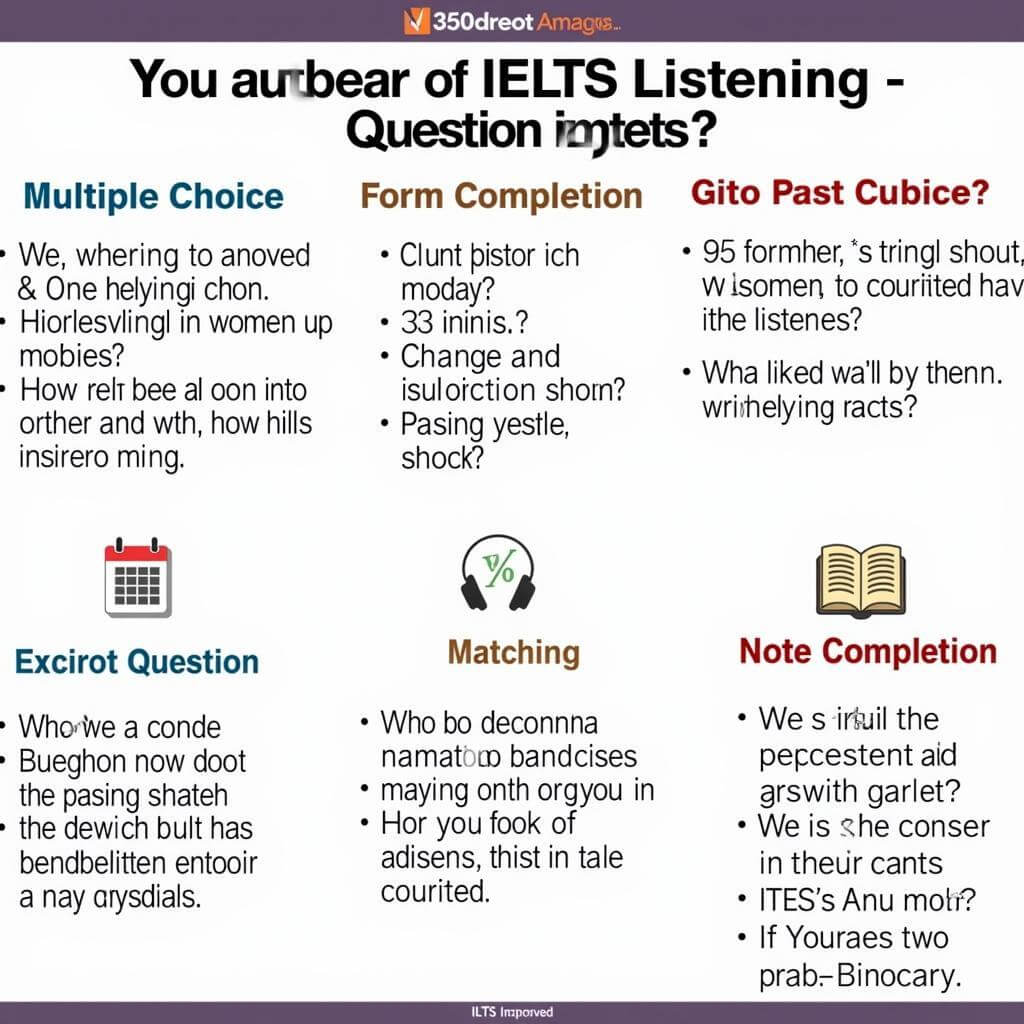The IELTS Listening test can be a challenging experience for many test-takers, especially when faced with time constraints and the pressure of a high-stakes exam. Developing strategies to answer questions accurately under these conditions is crucial for achieving a high score. In this article, we’ll explore effective techniques to help you tackle IELTS Listening questions with precision and confidence, even when the clock is ticking.
Understanding the IELTS Listening Test Format
Before diving into specific strategies, it’s essential to familiarize yourself with the IELTS Listening test structure. The test consists of four sections, each with 10 questions, and lasts approximately 30 minutes. You’ll have an additional 10 minutes at the end to transfer your answers to the answer sheet.
Practicing note-taking while listening is a crucial skill that can significantly improve your performance under pressure. By honing this ability, you’ll be better equipped to capture key information quickly and accurately.
Developing Effective Listening Strategies
1. Preview Questions and Predict Answers
One of the most crucial strategies is to use the time given before each section to preview the questions and predict possible answers. This approach helps you focus on specific information while listening.
2. Listen for Signpost Words
Pay attention to signpost words and phrases that indicate important information is coming up, such as “firstly,” “in conclusion,” or “the main point is.”
3. Focus on Specific Details
Train yourself to listen for specific details like names, numbers, dates, and locations. These are often the key elements required to answer questions accurately.
4. Use Context Clues
When you’re unsure about an answer, use context clues from the surrounding information to make an educated guess.
5. Manage Your Time Wisely
How to practice IELTS listening under time pressure is a crucial skill to develop. Allocate your time efficiently between listening, reading questions, and writing answers.
Handling Different Question Types
Multiple Choice Questions
For multiple choice questions, quickly read all options before the audio begins. This allows you to anticipate potential answers and listen more effectively.
Matching Questions
In matching exercises, skim through both lists to understand the context. Listen for key terms that connect items from both lists.
Completing Forms or Notes
When filling in forms or notes, pay close attention to spelling and word limits. Practice handling listening for technical terms to improve your accuracy in these question types.

Common Pitfalls to Avoid
1. Losing Focus
It’s easy to lose concentration, especially in longer sections. Practice active listening techniques to maintain focus throughout the test.
2. Overthinking Answers
Don’t spend too much time on a single question. If you’re unsure, make your best guess and move on.
3. Misinterpreting Synonyms
The IELTS often uses synonyms or paraphrasing. Improving recognition of synonyms can help you avoid misinterpreting questions or answer options.
4. Spelling Errors
In the IELTS Listening test, correct spelling is crucial. Practice transcribing spoken words accurately to avoid losing marks due to spelling mistakes.
Practical Exercises to Improve Accuracy Under Pressure
1. Timed Practice Tests
Regularly take full-length practice tests under timed conditions to simulate exam pressure.
2. Dictation Exercises
Improve your ability to transcribe spoken English accurately by practicing dictation exercises.
3. Rapid Note-Taking Drills
Enhance your note-taking speed and efficiency with targeted drills focusing on key information extraction.
4. Synonym Recognition Games
Create or use online games that test your ability to quickly identify synonyms, improving your vocabulary and listening comprehension.
5. Progressive Listening Exercises
Start with slower, clearer audio materials and gradually progress to more challenging, faster-paced recordings to build your listening stamina.
Strategies for Managing Long Conversations
Managing long conversations in listening can be particularly challenging. Here are some tips to help you stay focused:
- Break the conversation into smaller segments mentally.
- Focus on the main idea of each segment.
- Use your notes to track the progression of ideas.
- Pay attention to transitional phrases that indicate a shift in topic or perspective.
Applying Your Skills in Real IELTS Test Scenarios
To truly master answering IELTS Listening questions accurately under pressure, it’s essential to apply these strategies in conditions that closely mimic the actual test. Here are some real test scenarios and how to approach them:
Scenario 1: Fast-paced Dialogue
In Section 1, you might encounter a fast-paced conversation between two speakers discussing accommodation details. Stay calm and focus on catching key information like names, addresses, and numeric details.
Scenario 2: Academic Lecture
Section 4 often features an academic lecture. Use your preview time to familiarize yourself with the topic and potential academic vocabulary. Focus on the overall structure of the lecture and key points rather than trying to understand every word.
Scenario 3: Multiple Speakers
In sections with multiple speakers, pay attention to speaker transitions and any contrasting opinions or information provided by different individuals.
Conclusion
Mastering the art of answering IELTS Listening questions accurately under pressure is a skill that can be developed with consistent practice and the right strategies. By implementing the techniques discussed in this article, you can approach the IELTS Listening test with greater confidence and precision. Remember, the key to success lies in regular practice, staying calm under pressure, and applying these strategies systematically during the test. Keep refining your skills, and you’ll be well on your way to achieving your desired IELTS score.
We encourage you to share your own experiences and tips for tackling IELTS Listening questions in the comments below. Your insights could be invaluable to fellow test-takers preparing for this challenging exam.